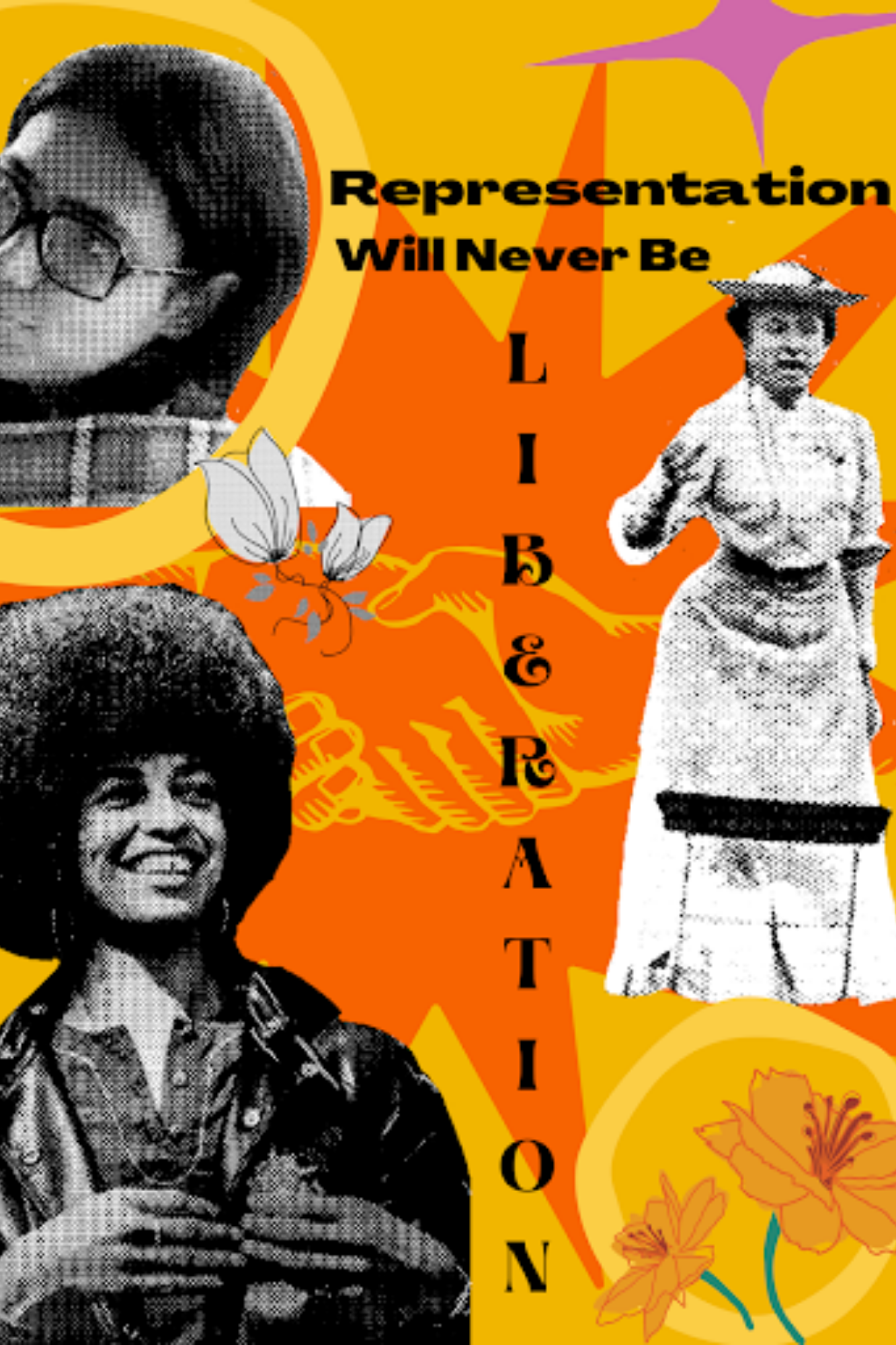
An essay by Karishma Ramkarran
The day Kamala Harris was sworn in as Vice President of the United States should have been a seminal step toward progress for Indian and black women everywhere. It should have been, but in reality, it was not.
Instead of feeling proud of the woman of color that broke the ranks, I was disappointed and fearful. The thought of my race and my gender being used like a pawn by bourgeois politicians was frustrating. Kamala Devi Harris may share a middle name with me, but she does not represent me. People of color are not a monolith; we may share similar hues of skin, but we have independent minds.
Upon viewing Harris’ track record, her progressivism dwindles when it is really needed– that is, when she is in a position of power. During her time as California’s attorney general, Harris betrayed the communities she is claimed to represent today.
Harris’ office exacerbated the War on Crime through its policy in California– a war that was discriminate against low-income and minority communities. Her justice reform was not reform at all; in fact, she enforced an unjust system.
For example, Harris’ office contributed to the overcrowding of California prisons, even after the Supreme Court found that the conditions in these prisons amounted to unconstitutional cruel and unusual punishment. The reason as to why her office advocated for this policy was horrifying– her lawyers argued that the state could not release too many prisoners because it would deplete its pool for prison labor.
The United States’ long time issue with police misconduct was protected and defended by Harris. When state prosecutor Robert Murray falsified a confession and used it to threaten a defendant with life imprisonment, Harris’ office defended it. The misconduct was dismissed because it did not involve physical violence.
Her resistance against bills that would hold police accountable for misconduct is abhorrent. Harris refused to support a bill that would require the attorney general’s office to investigate killings by the police and efforts to create statewide requirements for police-worn body cameras. Her track record is riddled with refusals to investigate questionable police shootouts in California.
Throughout Harris’ campaign for the 2020 presidential election, I was consistently disappointed by the sheer number of skeletons in her closet. One might argue that people change, and their past should not define who they are. However, as a political figure who is elected by her respective constituents, Harris has a responsibility to those she represents. A glance at the demographics of California would tell you that Harris’ constituents are predominantly minority groups. Instead of rising through the ranks in order to promote the welfare of these groups of people, Harris wielded her power with negligence. Her decisions were not made in a vacuum– Harris’ policy had tangible effects on the healing of oppressed communities. Following centuries of exploitation on behalf of the government and big corporations, Harris refused to advocate for those who needed her the most.
Besides, consistency in policy is important when evaluating a politician’s performance in a position of power. Inconsistency is not ideal– politicians with track records riddled with contradictions only generates suspicion among the populous. It is telling of a politician that holds no backbone. If a politician has a history of being undependable in their advocacy for the interests of their constituents, what is the incentive to vote for them? How can the mother of three who is working three jobs to support her family depend on said politician to improve her material conditions?
For many, voting is the only way in which they can improve their lives. Black Americans suffer the most under rugged individualism. Following centuries of being denied their inalienable rights to life, liberty and property, it is almost impossible for them to generate wealth equivalent to that of white Americans. Today, economic and social mobility is growing increasingly out of reach. Wages remain stagnant while the price of goods and services rise, cornering Americans into a situation in which they must work multiple strenuous jobs. Voting is an opportunity for the citizenry to enlist politicians that will pass legislation that will make society better for the many, not the few.
But recently politicians have continuously attempted to satiate the undying thirst for true change with false notions of representation and progressivism. The rise of unemployment in the United States due to the pandemic in conjunction with the murder of George Floyd by police officer Derek Chauvin has exposed America as a nation that only masqurades as the champion of democracy.
Rainbow coalitions of the working class have taken to the streets in order to protest the American Empire. We have grown disillusioned with the mirage that kept us from causing unrest. The history of revolutionaries in America has shown us we have the power to influence the tides of change. Change, however, cannot occur without agitation.
The feminist within me is not satisfied with Kamala Harris as Vice President of the United States. Those who hold the true power in United States– the big corporations that endlessly generate wealth for a select few at the expense of the many– believe they can throw a bone to the working class by electing politicians that look like us. They try to convince us that we have a seat at the table now, and encourage us to work within a system that actively works against us. Although Kamala Harris may sit at the table, the people do not. Our grievances are always placed on the backburner by those at the table in the interest of wealthy individuals.
We cannot wait for the Gracchi of our generation to liberate us from the chains of oppression. There is no politician of any race, gender, or sexuality that can liberate us. Jean-Jacques Rousseau’s social contract rationalizes this statement: the government attains its right to exist and to govern by its constituents. When a government becomes so severely deformed by corruption that people no longer recognize it, its demise is justified.
I would be ashamed to admit that I had risen from the ranks. When I rise, it will be with the ranks, and not from the ranks.
Eugene V. Debs
